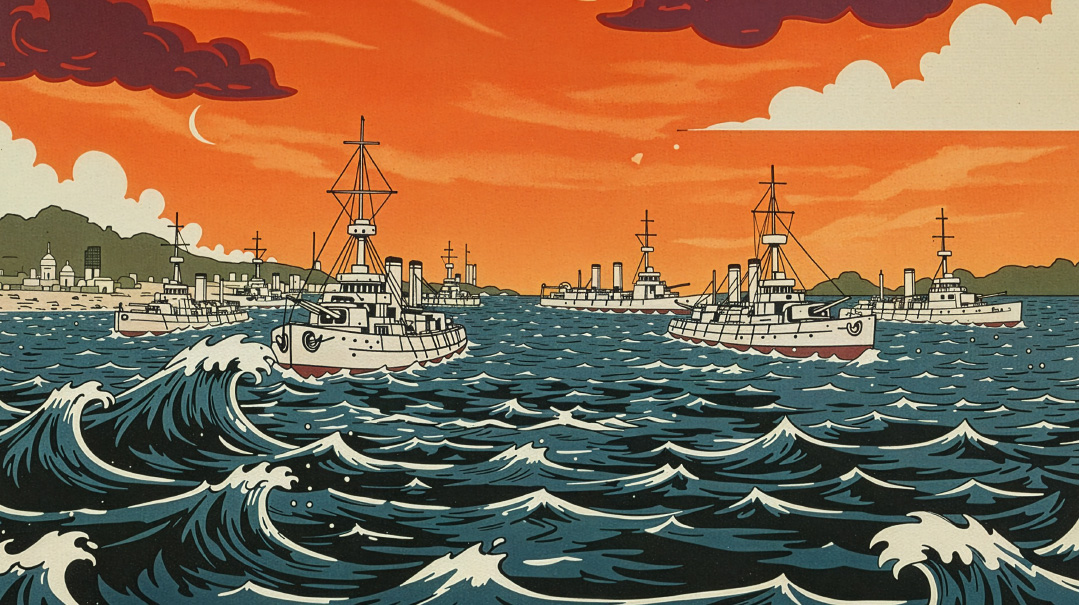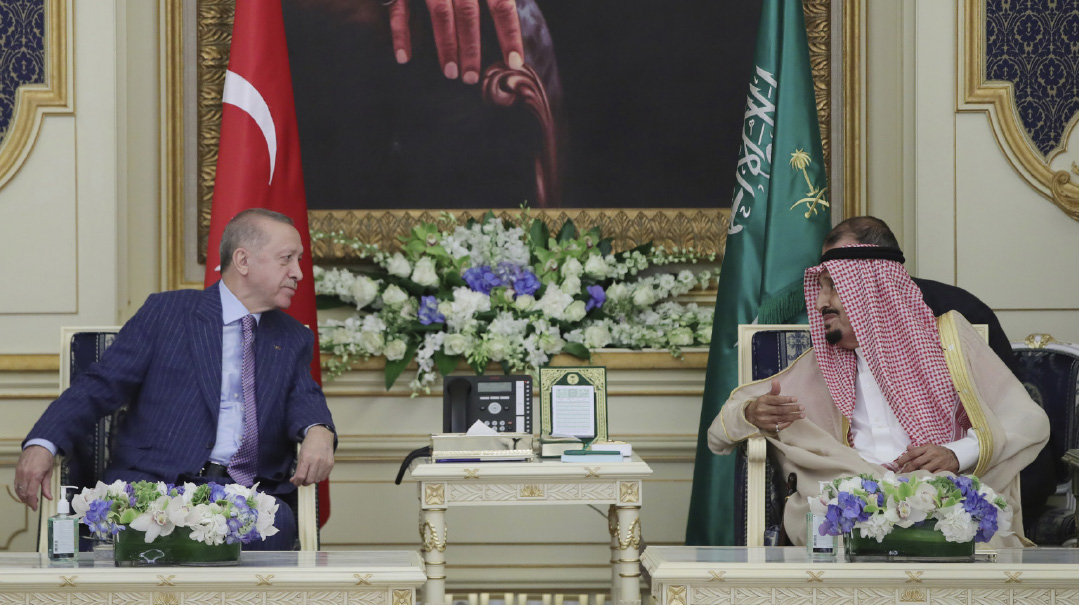I’m Sorry
| March 12, 2024Since October 7, Yishai Green, the leftist demonstrator who hurled a wad of cash at dancing bochurim last year, is singing a new tune
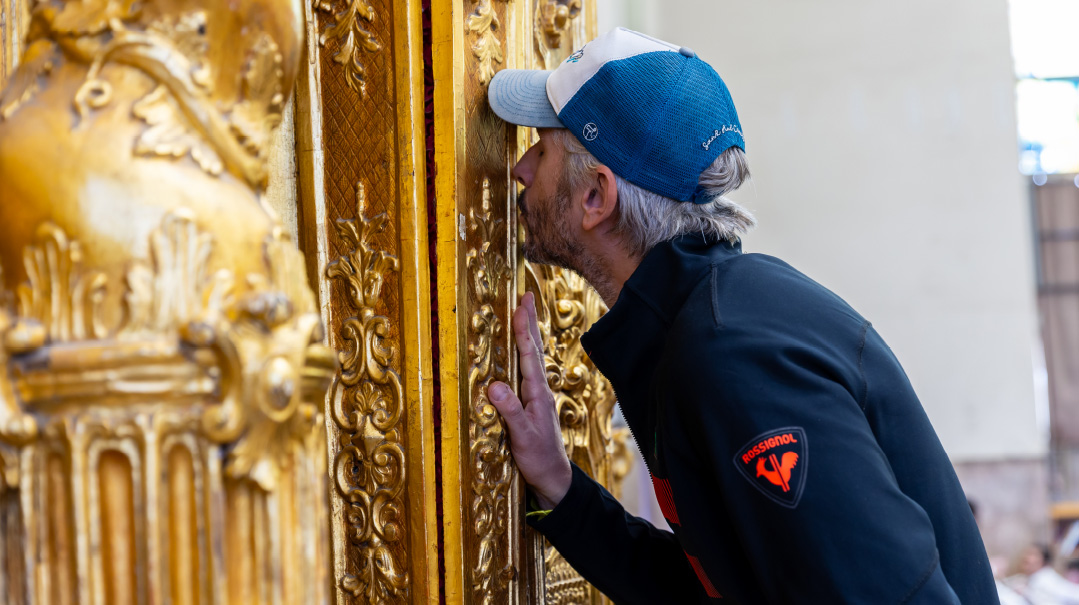
They called it “National Paralysis Day,” one of those days last spring when an alliance of anti-judicial reform demonstrators, pro-Palestinian radicals, militant leftists, and anti-religious protestors decided to close down Israel’s major highways and fan out to strategic sites for the most effective harassment.
One of the protest sites was opposite the home of Shas leader Aryeh Deri on the outskirts of the Bayit Vegan neighborhood, but dozens of yeshivah bochurim wouldn’t stand silent in the face of such an affront.
While the demonstrators were blowing their bazookas and bicycle horns and beating their tom-toms, the bochurim broke out in song and dance. And then, a fellow named Yishai Green, a prominent Brothers in Arms activist and a well-known high-tech entrepreneur and cyber whiz who’d made millions on some strategic exits of companies he’d created, drew closer to the circle of dancers.
Signaling to a team of photographers behind him, he then took out a wad of bills from his pocket and, in a clearly anti-Semitic trope, hurled the money into the courtyard below where the chareidim were dancing — half expecting them to pick up the cash and run, because isn’t money more important than ideals?
Both he and the camera crew with him were quite surprised when not one bochur left the circle to grab some cash, not one of them deigning to touch those tainted bills of hate.
The context was unmistakably clear. Jews and money, money and Jews. While many of his protestor friends applauded the stunt, even some of Green’s more moderate protest colleagues were uncomfortable and found it hard to defend his actions, embarrassed that in the chareidi street and beyond, another level of extreme incitement in the name of “concern for democracy” crossed so many red lines.
And then came the slaughter on Simchas Torah.
Suddenly, among the country’s mainstream at least, judicial reform became irrelevant and a two-state solution went up in smoke together with the homes in the Gaza Envelope.
Four months later, while discord is again rearing its head (perhaps on the far left it was never really suppressed to begin with, despite the illusions), there are also strong counterforces that are crying, “Enough! We can’t do this anymore!”
Yishai Green has opted to be one of the loudest of those voices, using his considerable social media and financial clout to call for unity and appeasement, offering apologies for any offense he caused and for his front-line role in the country’s rift.
Four months ago, he considered the ouster of the government an existential need. Now he has a different message: “For everyone, the penny dropped, and those who still cling to the old narrative are no longer relevant,” he says.
Today, Yishai Green is a persona non grata on the left, he’s no longer part of Brothers in Arms, and he’s even been removed from the Hostages Family Forum, which is for the most part an offshoot of the “Kaplan Force” demonstrators. In fact, last week Green was spotted on the Gaza border arm-in-arm with hundreds of demonstrators preventing humanitarian aid trucks from entering the Strip, the cargo of most of which goes straight to Hamas.
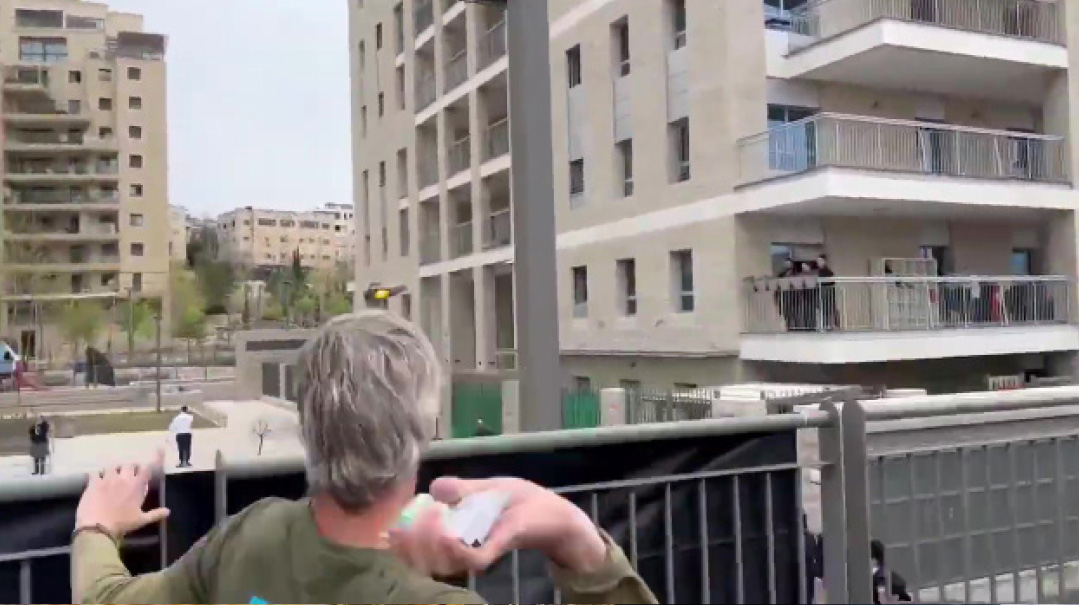
“W
e’d been so indoctrinated with the narrative that we have the right and obligation to revolt against the democratically elected government and drag down the religious sector and the right along with it, that I truly believed that not only was there no legitimacy to the other side, but that there really was no other side,” admits Green, 45. “I couldn’t even hear another side. There was no way to justify the right, no way to justify Netanyahu, no legitimacy to the idea that maybe the left was out to get him with all the court cases they’d opened, even though we all saw how one after another they’ll fallen apart.
“But still, our feelings were authentic. We were so caught up in the hype that my wife and I seriously considered moving out of the country if the reforms passed. You can agree with it or not, but you can’t just wave away the fact that many people were feeling this way.”
It took Israel’s fight for survival for Green to realize that something big had gotten out of control. “We had reached a very deep, dark place, which we are not supposed to get to. At the end of the day, it blew up in our faces. I believe that we have to reset the entire relationship between people in this country. We can’t continue fighting over the same things, in the same vulgar fashion that signified the period right before the massacre.
“Maybe I’m being overly optimistic,” Yishai Green continues, “but I came to the realization that even someone like Ben Gvir, who I previously disdained and still don’t agree with, is not a bad person at the core. He’s put himself on a limb for the nation many times, at personal sacrifice. But I canceled him, and that’s our sin. The arrogance.”
Reactions from the left to Green’s “defection” were mixed. “I can’t say a lot of people accepted this. Where I come from, not so many are willing to accept and give legitimacy to the fact that others think differently. How can serious, responsible people prefer the fall of Netanyahu to the fall of Hamas? But I’m at peace with where I am, and it’s a mission I took upon myself — I’m ready to do whatever it takes to bring unity back to the nation.
“In the past, I felt that I couldn’t even speak to you, my chareidi brothers. When I threw that stupid handful of bills, it was because I had no civil way of expressing what I was feeling at the time. I didn’t even know you, but it looked to me that you were always arguing over money, that you had no dignity or ideals. That’s how we were expected to think.
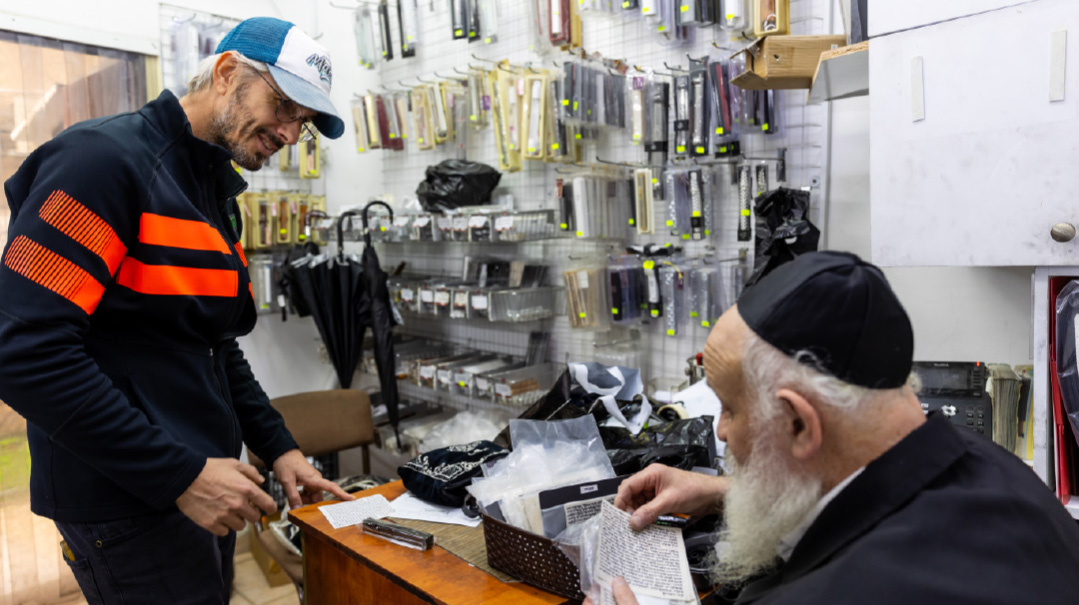
G
reen’s rude awakening came, like for so many others, on October 7. “Before that, we told ourselves that the Arabs hate us because some settlers decided to plant olive trees close to their fence, so it’s all the settlers’ fault,” he says. “Today everyone understands that they hate us because they hate us. Anyone who still thinks a two-state solution — creating a Palestinian state alongside Israel, which would give sovereignty to the people who laid waste to the Gaza Envelope towns, hunting down the kibbutzniks and murdering, abducting defiling, and burning them alive, is just clinging to his old delusions.
“You know, I used to hate the ‘settlers,’ those ‘obstacles to peace.’ But today, I feel safe in Tel Aviv because all the ‘settlements,’ those half a million people between my home and the border of the Arab world, are actually a buffer — they are the Kfar Azah, the Nir Oz, of the entire country. Kfar Azah lies in ruins and no one is thinking of going back there, but in the yishuvim, the residents are living through Kfar Azah every day. Today I know that they’re the ones who have my back.
“I have these friends, they’re both doctors, and they got so caught up in the movement of hatred and the narrative of disillusionment — how ‘let’s harm the economy, let’s get our money and our professions out of this country in order to show them’ — that the husband was talking about leaving for Canada. She didn’t want to leave, so they stayed, but recently, after people she knew were slaughtered, we met and she whispered to me, ‘Yishai, I didn’t know we were Jews before anything else… I didn’t know we were Jews.’”
Yishai Green’s call to action today is really a call for conciliation.
“Look, I’m not part of the other side anymore,” he says. “I don’t want them and they don’t want me. But it’s not about me and them. It’s about all of us. If we don’t realize that we need to release ourselves from the warmongers, from those who sanctify the intrigue and the discord, we might wake up one morning to an even greater disaster. So let’s learn a lesson and try to work toward a better future. More united. We tried to fight, and it didn’t work. Maybe we should try the peaceful way? I think it’s worth it.
“One of my friends serving in Gaza, a totally secular guy, sent me a picture of himself wearing tallis and tefillin. I asked if something happened, maybe he became a baal teshuvah and I didn’t hear about it, but he claimed that no. He said: ‘My religious friend who was together with me in the APC asked me to put on tefillin as a merit for Am Yisrael. I’m not used to it, but now, for my blood brother, I’m ready to do anything.’
“This needs to be the new approach for all of us.”
—Rachel Ginsberg contributed to this report
(Originally featured in Mishpacha, Issue 1003)
Oops! We could not locate your form.


